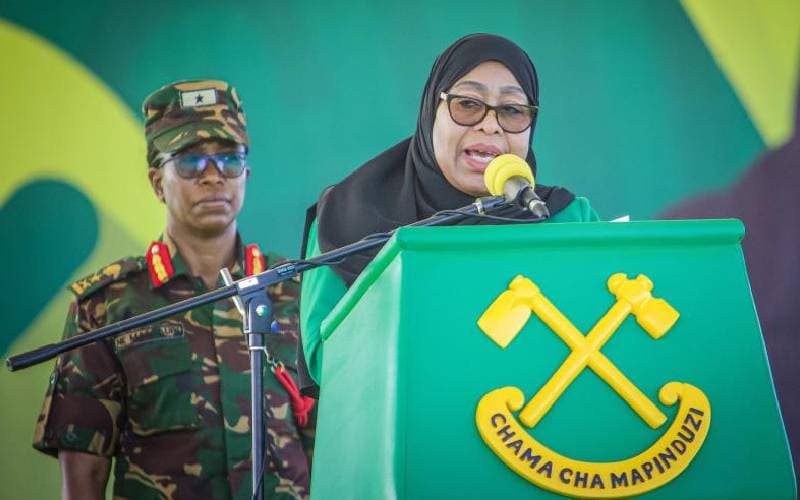We're loading the full news article for you. This includes the article content, images, author information, and related articles.
Regional bodies including the EAC have deployed monitors for Tanzania's election, but the disqualification of major opposition parties and arrests of key figures raise significant questions for Kenyan businesses and regional democratic stability.

DAR ES SALAAM – Regional and continental bodies have deployed election observation missions to Tanzania ahead of the general election scheduled for Wednesday, 29 October 2025, even as human rights organizations raise alarms over a severely constrained political environment. The presence of these observers, including teams from the East African Community (EAC), the Southern African Development Community (SADC), and the African Union (AU), counters initial reports suggesting their exclusion but places them in the center of an election marked by a crackdown on opposition and dissent.
The EAC officially launched its 67-member mission on Friday, 24 October 2025, led by former Ugandan Vice President Dr. Speciosa Wandira Kazibwe. The mission, comprising representatives from all EAC partner states, is mandated to assess the electoral process against Tanzania's national laws and international democratic standards. Similarly, SADC launched its 80-observer mission on Tuesday, 21 October 2025, headed by Richard Msowoya, the former Speaker of Malawi's Parliament, deploying teams to 27 of Tanzania's 31 regions. The African Union has also dispatched a 72-member team led by former Botswana President Mokgweetsi Masisi.
Despite the presence of these missions, the electoral landscape is fundamentally altered by the systemic exclusion of major opposition parties. In April 2025, the Independent National Electoral Commission (INEC) disqualified the main opposition party, Chadema, for failing to sign an electoral code of conduct. The party's chairman, Tundu Lissu, was arrested on charges of incitement and treason and subsequently barred from participating in the election. Furthermore, the presidential candidate for the Alliance for Change and Transparency (ACT-Wazalendo), Luhaga Mpina, was also disqualified.
These actions have effectively removed any significant challenge to the incumbent, President Samia Suluhu Hassan, and the ruling Chama Cha Mapinduzi (CCM) party. Human Rights Watch and Amnesty International have released detailed reports documenting a pattern of intensifying repression, including arbitrary arrests, assaults, and enforced disappearances of opposition members, activists, and journalists in the lead-up to the vote. This pre-election environment has led analysts to describe the political climate as largely uncompetitive.
The situation in Tanzania, a critical economic and strategic partner, carries significant implications for Kenya and the wider East African region. A stable and democratic Tanzania is vital for cross-border trade, investment, and regional security cooperation. Any political instability or a crisis of legitimacy following the election could disrupt this partnership. The conduct of the election and the subsequent political environment will be a key test for President Samia's leadership and will likely shape Tanzania's role within the EAC for the next five years.
The deployment of the EAC observer mission, in particular, is a crucial function of the regional bloc, anchored in Article 6(d) of its treaty, which obligates partner states to uphold good governance and democratic principles. The mission's preliminary findings, expected shortly after the election, will be closely watched in Nairobi and other East African capitals. A final, comprehensive report will offer recommendations aimed at strengthening future electoral processes. However, critics have noted that regional observer missions are often constrained in their ability to be harshly critical, raising questions about the ultimate impact of their presence in a contentious political environment. For now, all eyes are on whether the voting process on Wednesday, declared a public holiday to encourage participation, will proceed peacefully despite the underlying tensions.
Keep the conversation in one place—threads here stay linked to the story and in the forums.
Sign in to start a discussion
Start a conversation about this story and keep it linked here.
Other hot threads
E-sports and Gaming Community in Kenya
Active 9 months ago
The Role of Technology in Modern Agriculture (AgriTech)
Active 9 months ago
Popular Recreational Activities Across Counties
Active 9 months ago
Investing in Youth Sports Development Programs
Active 9 months ago
Key figures and persons of interest featured in this article